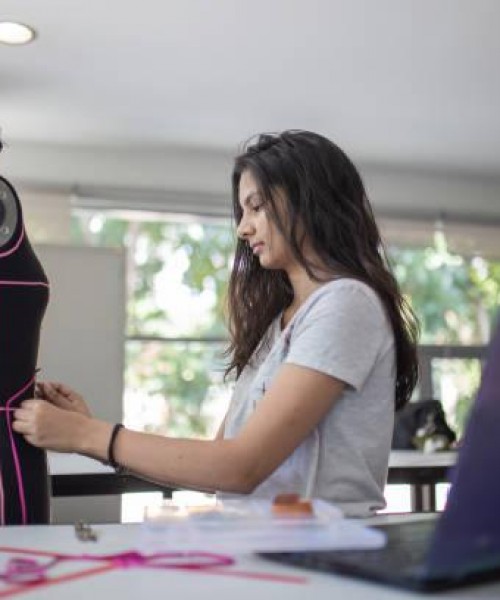2. Methods
Discussed in this section will be the sampling technique, data collection processes and the method for data analysis. Ethical issues and the steps taken to address them will also be considered here.
2.1 Sampling
The proposed research will focus on the impact of bilingual education on the minority communities in Siem Pang district, Stung Treng province. In each of these communities there is one school providing bilingual education from grades one to three, and this research will use a convenience sample to select one school with ready access for the researcher. Two students from each of the three grades (n = 6) from the selected school will be invited to participate in an interview. A parent of each of the invited students will be invited to participate in a focus group discussion plus two members of the school support committee based on their availability (n=8).
A list of male and female students from the selected school will be sought from the school principal by the researcher. Simple random sampling will be used to select two students from each of the three grades. The researcher will write each individual student's name on a separate slip of paper, place all the slips in a container, shake the container, and select slips from the container until the desired number of participants is selected. This process will be repeated by grade and gender with girls in one container and boys in the other in order to have gender balance. It is important to have gender balance in this study so that equally representative voices can be heard.
An Information Form and an Informed Consent form and letter from the school principal developed by the researcher will be sent to parents by the teacher through the selected students to seek their parental approval. If parents of the selected students do not approve of their children participating in this research, the same process will be repeated with other students of the selected school until the desired sample has been achieved.
There are limitations deriving from both time constraints and geographical conditions for conducting this research, so the sample size will not be large enough to generalize the outcomes of this study. This sampling approach also has some limitations. It cannot guarantee a good representation of the whole population in the village or the class, reducing the generalizability of the results. However, the impact of bilingual education in this minority community can still be measured through a carefully structured research tool.
2.2 Data collection
2.2.1 Interviewing
Data will be collected through individual interviews with the students of each of the three grades who have received parental consent to participate, and with two adult focus groups of four each group consisting of the parents of three students and a member of school support committee in each group. Student interviews will be done by grade level, three interviews with the 2 children from the same grade level.
Due to time constraints, conducting pair interviews with students is a preferable option to the researcher. To reduce the possibility of boys dominating the interview, the interviewer will intentionally direct the questions to girl students in an effort to encourage female participation.
The potential adult participants in focus group discussions will be provided with an Information Sheet in their own language, explaining the research purpose and a Consent Form (see Appendix A). Potential child participants will be provided with an Information Form and Consent Form in their own language that requires parental as well as child consent, in an attempt to address ethical concerns about interviewing children who are under the legal age of consent. Interviews with students will be conducted at their school on Thursday morning because Thursday is no-class day whilst focus group discussions will be conducted in the afternoon of the same day and at the same place. The interviews and focus group discussions will be audio-recorded for later transcription and analysis
The interviews and focus groups (draft questions in Appendix E) will be conducted by the researcher and facilitated by a bilingual teacher, who can speak the local language well, to help smooth the process and to avoid any potential misunderstanding during interviews and focus group discussions. The teacher will not be the child's teacher to prevent any concerns of the child in the event they make a critical comment. An education official each from the provincial and district offices will be approached to establish communication flow between the researcher and study participants in terms of making appointments for the interviews and focus group discussions.
An interview protocol and questions will be developed for use in the interviews and focus group discussions (see Appendix B). Students will be asked semi-structured questions by the researcher, with translation by a bilingual teacher. Possibly probing questions will also be developed to use when new themes come up during interviews and focus group discussions. The researcher will discuss the questions beforehand with the translator to clarify the content and intent of the questions with the intent of thereby reducing confusion during the times of interviewing and discussion.
All interviews and discussions will be audio-recorded so that the process can be conducted smoothly without interruptions for note taking. The recordings will later be transcribed for thorough analysis, and will be translated into English. The recordings, the transcriptions as well as the translations will be stored and password protected in the researcher's personal computer for confidentiality and will be destroyed after the research report has been completed.
There are some limitations to the use of interviews and focus group discussions. Students, their parents and community leaders of the minority group do not have much exposure to the world outside their immediate community, and this may lead to narrow views in their responses and discussions and limit the richness of data/information collection. All the research participants are new to interviews and focus group discussions, and this may restrain them from speaking openly and frankly. The use of a translator could also complicate the process and add an unintended confusion to participants. Focus groups cannot guarantee confidentiality therefore individual respondents may be restrained in their responses if they believe someone in the group might tell others about particular comments, especially any perceived as critical.
2.3 Data analysis
The analysis will be done first by transcribing the recorded responses from the interviews and focus groups. Similar phrases from each transcript are put together under descriptive labels. By doing so, data are pooled and a pattern or theme will emerge. Given the small number of participants in both interviews and focus group discussions, data analysis will be done using excel spreadsheet.
2.4 Ethical considerations
The true purpose of this study will be plainly explained to all participants in this research and the general benefits deriving from this research for their community will also be explained in order to gain their full participation. It will be explained that participation is voluntary and anonymous. By doing so the research participants understand they are not compelled to engage against their will and may withdraw from participating at any time.
The researcher pays great attention to ethical issues that might be concerned with the study in terms of coercion and power imposed on the participants. Therefore, the researcher has designed an Information Sheet and Consent Form in the ethnic language explaining the purpose and the process of the study as well as their right to refuse to participate before the study can start.
An informal approach to the conduct of the interviews and focus groups will be pursued in order to put all the participants at ease and to elicit as rich and varied information as possible.










